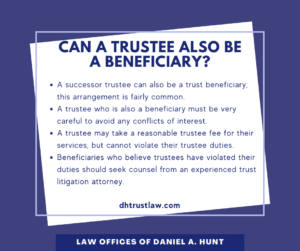Every time a kid switches from the physical custody of one parent to the other, an actual child exchange takes place. Exchanges of children fall under the “visitation rights” category under family law. This is founded on the idea that both parents have a right to spend time with their children. These issues include things like unpaid child support and other issues.
The following gives guidance on how to make the child custody exchange process work for you and your kid while also giving a summary of the procedure.
Child Custody Exchange
But these changes from one parent to the other could get tricky because of the way child custody works. Pick-ups and drop-offs to your co-parent might occasionally go wrong. There can be problems with a safe exchange that endanger your child’s safety.
Managing Differences
Child custody agreements may be difficult and tense. Even a couple who is separating amicably may run into problems with the custody and visiting schedules. The majority of child custody agreements contain a timetable for visiting and parenting time. This plan specifies the day, time, and setting for kid exchanges. However, occasionally this is insufficient to avert disputes.
Conflicts may arise while exchanging the kid. Typically, disputes can arise over issues pertaining to education, parenting choices, and child support.
Emotions may be intense. This is particularly true when parents are at odds with one another or have a history of animosity. The child’s surroundings can then turn unpleasant and aggressive. These arguments might cause them to experience bodily or even emotional harm.
It might be difficult to handle conflicts during a custody handover. But it’s crucial to put the child’s welfare first. If disputes emerge, it’s crucial to maintain composure and concentrate on coming up with a solution that is in the child’s best interests. The key is communication. Parents may contribute to the creation of a supportive and caring atmosphere that promotes the child’s health and well-being by prioritizing the child’s needs and collaborating to find a solution.
Exchanges of Child Custody Gone Wrong
There are several instances of child custody swaps going wrong, frequently tragically. For instance, a guy in California killed the mother of his little boy while exchanging children with her at a police station.
After arguing with the mother of his kid, a man in Bellingham, Washington, attempted to remove the woman from the car and pepper sprayed her friend, who was a passenger.
These instances provide examples of the legal difficulties that might develop during these intensely personal interactions. To assist prevent or halt the dangerous activity, especially when it involves a kid, law enforcement may be contacted.
But they normally just record what is happening (or what has already happened) in child custody cases so that the court may review it later.
Safeguards for Child Custody Exchange
However, because of the nature of their circumstances, many parents are not concerned about the safety of the custody transfer. It is a serious problem for people who have high-conflict co-parents, especially for victims of domestic abuse.
This advice can encourage secure transactions:
1. Hold Discussions in a Dedicated Public Space
There are several designated “safe zones” in cities where parents can switch custody in a public environment.
These are frequently seen in the parking lots of police departments or are operated by municipal authorities and private businesses.
To find out if there is a designated safe exchange location close to you, contact the local authorities. Parents who are exchanging custody can meet up safely at one of the locations on SafeTrade Station’s list of safe meeting places around the United States.
2. Only Pick Up and Drop Off Your Kids in Places That Are Well-Lit.
No matter where or when you decide to meet for custody exchanges, it is always a good idea to perform pick-ups and drop-offs in well-lit places. even when the trade location is in a public setting. For numerous reasons, improved illumination has been shown to lower crime. Additionally, it discourages potential criminals. It also increases the likelihood that police or onlookers may capture a perpetrator in the act.
3. Tell a Loved One Where You Are.
Inform a friend or family member of the location and estimated arrival time for your custody exchange. Send them the address through text message or let them know where you are to do this. As soon as the exchange is through, let your loved one know to expect a call or text from you to let them know everything went as planned.
4. Avoid Discussions and Disagreements.
The time and place for tense discussions are not during a custody exchange. Your children should come first during pick-ups and drop-offs so that they can arrive at their destination without incident. Avoid getting involved if the other parent attempts to provoke an argument or bring up a contentious subject. Have your phone nearby in case the situation worsens and you need to contact the police or a trusted individual.
What Are the Best Child Custody Exchange Arrangements for Peaceful Co-parenting?
Every family is distinct, and because of this, each circumstance is special due to the interaction between the parents’ lives and the demands of the children. Additionally, the ideal co-parenting schedules for young children are probably different from those for school-age kids and teenagers. Parents must also take into account their work and other life events.
Concerns Regarding Child Custody Exchange? Speak to a Lawyer
Child custody is a tough topic to negotiate, as was said above. The exchange of child custody can be challenging even when an agreement has been reached. The best course of action, if you have complex child custody disputes, is to speak with a skilled family law attorney who can guide you through any legal ramifications your circumstance may bring up.
You can negotiate custody disputes with the assistance of child custody lawyers. They can assist you through your custody dispute. They can assist you in working up a custody arrangement or parenting schedule with your co-parent. Until you arrive at a final custody decision, an attorney will guide you through the family court process.
RELATED ARTICLES
How To Get Full Custody Of A Child: Best US Practices
CHILD CUSTODY AGREEMENT WITHOUT COURT: Best 2022 Practices
Reasons a Judge Will Change Custody Order: Top 7+ Picks



